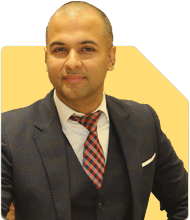I am 44/F. I still have 14 years of service remaining but I want to retire early in the next 5 years. Our combined family savings per month in PPF & SSY Rs. 50 k, MF rs. 95000, PF & VPF Rs. 25000, LIC Rs. 3000 , NPS Rs. 8500. Apart from this we have a corpus of Rs. 1.10 crore in various post office and FD Schemes, stock and MF Rs. 52 L, accumulated PF rs. 50 L, PPF & SSY Rs. 28 L, LIC SURRENDER VALUE rs. 9.80 L. We have to spend Rs. 1.40 crore after 5 years for my 2 kids higher education. We are debt free and as on date apart from our residential house we have other properties valuing approx. 3.5 crore. Have sufficient mediclaim as well as term insurance. We want rs. 1.5 L as monthly income even after retirement. Please guide how much we need to save and where to invest the required amount.
Ans: Assessing Your Current Financial Situation
You are in a strong financial position with a healthy savings habit and diversified investments. Your goal of early retirement in 5 years with a monthly income of Rs 1.5 lakh is ambitious but achievable with careful planning. Let’s assess your current financial landscape to create a strategy that meets your objectives.
Existing Investments and Savings
PPF & SSY Contributions: Rs 50,000 per month
Mutual Fund Investments: Rs 95,000 per month
PF & VPF Contributions: Rs 25,000 per month
LIC Premiums: Rs 3,000 per month
NPS Contributions: Rs 8,500 per month
Accumulated Corpus:
Post Office and FD Schemes: Rs 1.10 crore
Stocks and Mutual Funds: Rs 52 lakh
PF: Rs 50 lakh
PPF & SSY: Rs 28 lakh
LIC Surrender Value: Rs 9.80 lakh
You have a diversified portfolio with a mix of conservative and growth-oriented investments. Your savings rate is commendable, and you are debt-free, which adds to your financial security.
Financial Goal: Funding Higher Education
Your immediate goal is to set aside Rs 1.40 crore for your children’s higher education in 5 years. Given your existing corpus and ongoing investments, this goal is within reach.
Current Savings: Rs 2.49 crore (including PPF, SSY, PF, LIC, stocks, and MFs)
Education Goal: Rs 1.40 crore in 5 years
Assuming your investments continue to grow at a moderate rate, you should be able to comfortably meet this goal by allocating a portion of your current corpus and future savings. Consider setting aside Rs 1.40 crore from your post office and FD schemes, which are safer but have lower returns. This ensures the funds are available when needed.
Early Retirement Planning
Your target monthly income of Rs 1.5 lakh after early retirement in 5 years requires careful planning. Here’s a breakdown of how much you need to save and where to invest:
Estimating the Required Retirement Corpus
To generate Rs 1.5 lakh per month for 30 years after retirement, you need a substantial retirement corpus. Assuming a conservative withdrawal rate and factoring in inflation, you’ll need approximately Rs 5.5 crore to Rs 6 crore.
Current Investments and Future Contributions
Let’s evaluate how your current investments and savings will contribute to your retirement goal:
PPF & SSY: Continue your Rs 50,000 monthly contribution. In 5 years, this should grow to approximately Rs 61 lakh, providing a stable and tax-free income.
Mutual Funds: Your Rs 95,000 monthly SIPs will grow significantly over the next 5 years. Assuming an average return, this can grow to around Rs 81 lakh, which can be a key source of your retirement income.
PF & VPF: Continuing with Rs 25,000 monthly contributions will grow your EPF corpus to around Rs 71 lakh. This provides a stable income source post-retirement.
NPS Contributions: Your Rs 8,500 monthly contributions will add up to a reasonable corpus of around Rs 10 lakh in 5 years. NPS offers an additional income stream with tax benefits.
LIC Policies: With a surrender value of Rs 9.80 lakh, consider evaluating if it’s better to reinvest this in a higher growth option. LIC policies often underperform compared to mutual funds.
Post Office and FD Schemes: Your Rs 1.10 crore in conservative schemes provides safety but low returns. Consider diversifying part of this into balanced mutual funds or debt funds for better growth with low risk.
Stocks and Mutual Funds: Your Rs 52 lakh investment in stocks and mutual funds can be rebalanced to align with your risk tolerance as you approach retirement. Consider shifting some equity exposure to balanced or hybrid funds to reduce risk.
Strategy to Achieve Your Retirement Goal
Based on your current assets and future needs, here’s how you can achieve your retirement goal:
1. Continue with Existing Investments:
Maintain your current SIPs in mutual funds. They provide growth and help you achieve your retirement corpus.
Keep contributing to PPF, SSY, and PF as they offer stable, tax-free returns.
Review your LIC policies. If they are underperforming, consider surrendering them and reinvesting the surrender value into mutual funds or debt funds.
2. Rebalance Your Portfolio:
Diversify your post office and FD investments. Consider allocating a portion to balanced mutual funds or debt funds, which offer better returns with moderate risk.
Reduce equity exposure as you near retirement. Shift some equity investments into balanced or hybrid funds to reduce volatility.
3. Building the Required Corpus:
Your goal is to accumulate Rs 5.5 crore to Rs 6 crore. Based on your current savings rate and existing corpus, this is achievable with disciplined investing.
Consider increasing your monthly contributions to mutual funds or NPS, if possible. This will boost your retirement corpus.
4. Withdrawal Strategy Post-Retirement:
Use a Systematic Withdrawal Plan (SWP) in mutual funds for monthly income. This provides flexibility and tax efficiency.
Utilize your PPF, SSY, and PF for stable income streams. They offer guaranteed returns and tax benefits.
NPS can provide additional monthly income through annuities, but consider using it as a secondary income source.
Final Insights
Your goal of early retirement with a monthly income of Rs 1.5 lakh is within reach. You are on the right track with your current investments and savings. Continue with disciplined investing, rebalance your portfolio as you approach retirement, and focus on accumulating the required corpus.
Consider consulting with a Certified Financial Planner to fine-tune your strategy and ensure you stay on course.
Best Regards,
K. Ramalingam, MBA, CFP,
Chief Financial Planner,
www.holisticinvestment.in



























